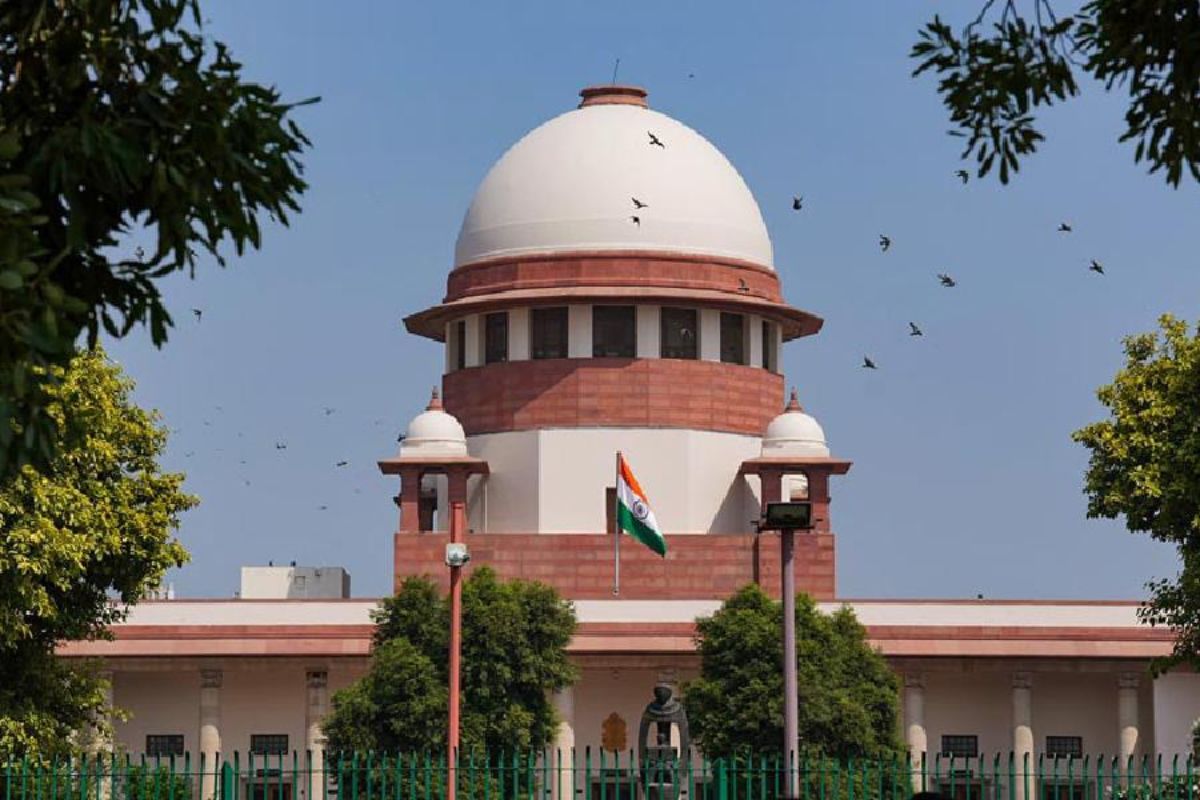Visually impaired eligible for appointment in judicial services: SC
In an important judgment, the Supreme Court on Monday held that visually impaired candidates are eligible to participate in selection for the posts under the judicial service
A heavy agenda awaits the Supreme Court as it resumes its working from Tuesday – January 2, 2024 – after two weeks long winter holidays – Christmas and New Year.

SC quashes proceedings against Karnataka Dy CM Shivakumar in PMLA case
A heavy agenda awaits the Supreme Court as it resumes its working from Tuesday – January 2, 2024 – after two weeks long winter holidays – Christmas and New Year. The agenda includes, besides hearing of the important matter by seven-judge constitution bench, the adjudication of TMC leader Mahua Moitra’s challenge to her expulsion from the Lok Sabha, likely decision by Maharashtra Assembly Speaker on the cross petitions seeking the disqualification of rival Shiv Sena law makers in the State assembly and the inaction by the certain Governors in the opposition ruled States on the laws passed by the respective State legislatures and sent them for assent.
As a part of its calendar, a seven-judge constitution bench will adjudicate a number of issues including whether 2018 amendments to the Prevention of Money Laundering Act, 2002, could have been brought and passed as a money bill (part of the 2018 Finance Act) and whether a Speaker is disabled from acting on the petitions seeking the disqualification of lawmakers under the Tenth Schedule of the constitution if he has been served with notice of removal.
Advertisement
A three-judge bench of the Supreme Court comprising Justice AM Khanwilkar, Justice Dinesh Maheshwari (both since retired) and Justice CT Ravikumar by July 27, 2022, judgment while upholding the validity of various stringent provisions of the Prevention of Money Laundering Act empowering the Enforcement Directorate (ED) to arrest, provisionally attach properties suspected to be the proceeds of crime, had left it for a larger seven-judge bench to decide the question whether some of the 2018 amendments to the Prevention of Money-laundering Act, 2002 could have been enacted by the Parliament by way of a Finance Act. The petitioners have challenged the introduction of amendments to PMLA Act as a money bill, part of 2018 Finance Act.
Advertisement
On the question whether a speaker gets disabled to act under the 10th Schedule of the constitution if a notice seeking his removal has been served on him, the seven-judge bench would be revisiting July 13, 2016, a five-judge constitution bench judgment which had held that a speaker cannot act in exercise of his powers under the 10th Schedule, if notice for his removal as Speaker is pending.
Other important issues that would be adjudicated by the seven-judge constitution bench include ‘Interplay between breach of privilege and fundamental rights’, ‘Whether central institutes like Aligarh Muslim University can have minority status’ and the ‘Validity of sub-classification within SC/ST quotas.’
Also awaiting to be adjudicated by a five-judge constitution bench, the Kejriwal government’s challenge to the validity of the Government of National Capital Territory of Delhi (Amendment) Act, 2023, vesting in the Lieutenant Government powers to override the recommendations by the Authority in the transfer and posting of senior ranking bureaucrats serving under Delhi government.
The National Capital Civil Service Authority for the transfer, posting and other matters relating to senior babus, is recommendatory in nature and makes recommendations to Lieutenant Governor. With the Chief Minister of Delhi as its Chairperson, the Authority has Chief Secretary and the Principal Home Secretary of Delhi government as its members and the decisions will be taken by majority vote.
Besides this, a number of judgments are awaited to be pronounced that includes judgment on the challenge to the validity of Section 6A of the citizenship Act which was inserted in furtherance of 1985 Assam Accord, Electoral Bonds, pre-mature release of convicts in Bilkis Bango gangrape and murder of nine members of her family including her three-year old daughter during 2002 Gujarat riots.
In Bilkis Bano case judgment was reserved on October 12, 2023.
Another judgment that is awaited is on the question whether Section 17A of the Prevention of Corruption Act (PC Act), that requires prior approval of the Governor for initiating prosecution against a Chief Minister or a Minister, would be effective retrospectively or prospectively from the date of its incorporation in the PC Act – July 26, 2018. judgment was reserved on October 17, 2023.
Section 17A was incorporated by a 2018 amendment in the Prevention of Corruption Act, 1988. The issue has surfaced in the former Andhra Pradesh Chief Minister Nareea Chandrababu Naidu’s challenge v to the registration of FIRs against him in alleged graft cases rooted in Rs. 371 crore Andhra Pradesh Skill Development project scam and in fibernet case.
December 12, 2023, a five-judge constitution bench had reserved its judgment on a batch of petitions challenging constitutional validity of Section 6A of the Citizenship Act, that was inserted in pursuance to the 1985 Assam accord for granting citizenship to the immigrants from Bangladesh who had crossed over to India between January 1, 1966 to March 25, 1971. Both the Central government and others defending the validity of a provision had asserted that Section 6A could not be questioned on the apprehension of the language, culture, and religious identities of Assamese people getting overshadowed by the presence of the immigrants from Bangladesh.
The Supreme Court on November 2, 2023, had reserved judgment on a batch of petitions that had challenged the validity of the 2017 electoral bond scheme on the grounds of being opaque, violative of citizens right to information under Article 19(1)(a), and 50 per cent of the funding through electoral bonds going to the coffers of the ruling parties at the Centre and in the States. The petitioners have stated that maintaining the confidentiality of the corporate donors cannot override the right of the 140-crore people to know the sources of the funding of the political parties through the bonds.
Advertisement